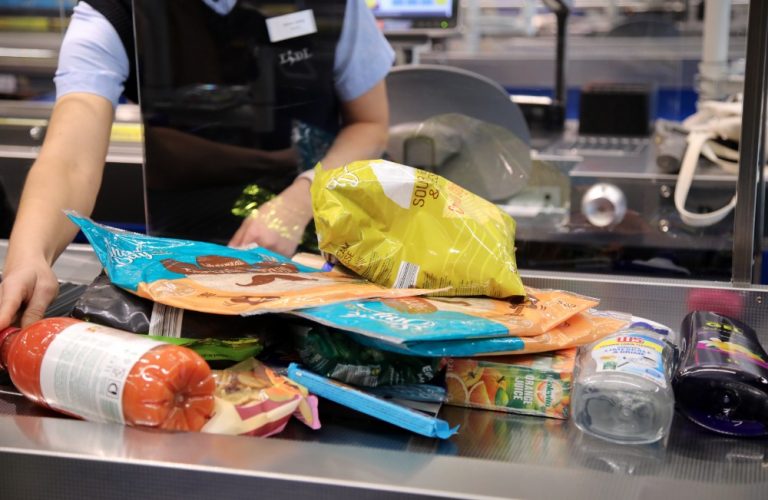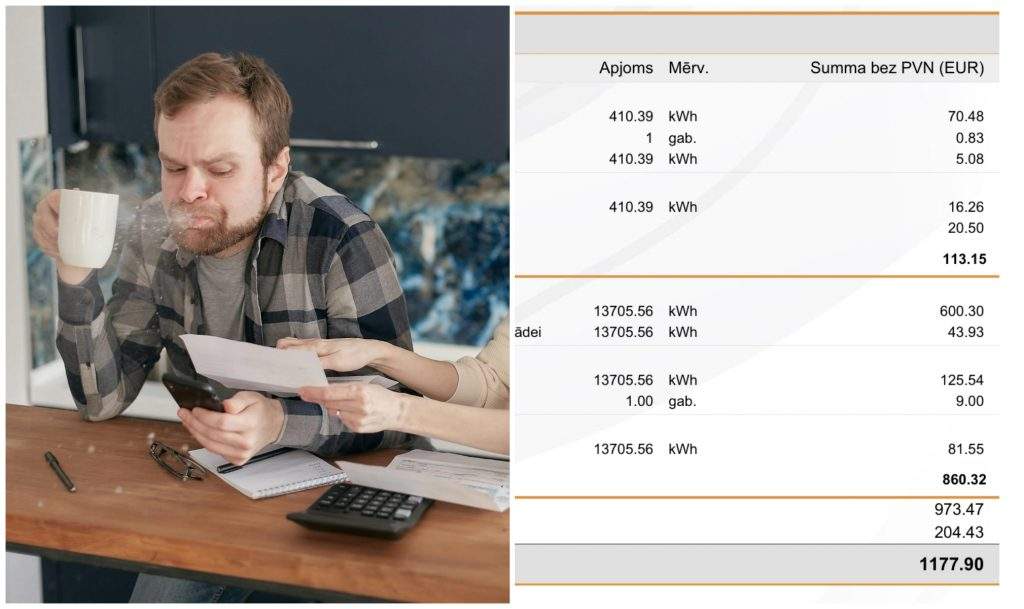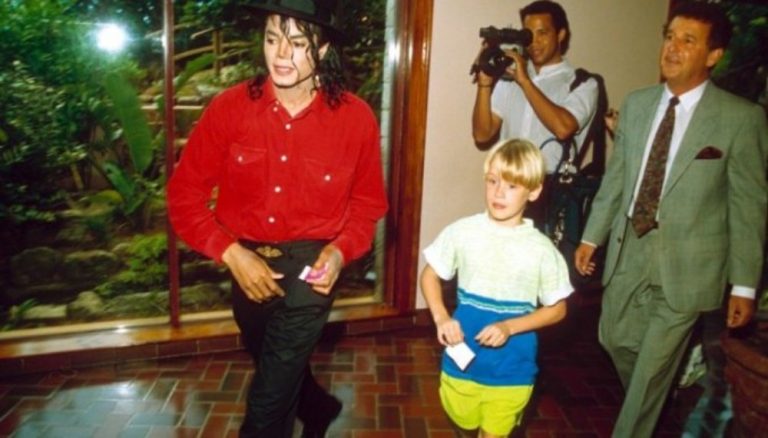
Paskaties, ko “Google” zina par tevi! IT milži par katru no mums savākuši neticamu daudzumu informācijas 15
Tava atrašanās vieta, “Google” meklēšanas vēsture no visām lietotajām ierīcēm, kādas lietotnes esi lietojis, cik bieži un kur tās esi lietojis, kad un no kurienes esi “iegājis” “Facebook”, kas pēc “Facebook” domām tevi varētu interesēt, kādas spēles spēlē, kādu mūziku klausies, kādus video esi skatījies “YouTube”, kādās vietās esi pabijis, kādas bildes un video esi uzņēmis, vai arī kādas bildes un video esi saņēmis, tavus kontaktus, e-pastus un to vēsturi, grāmatzīmes, “Google Drive”, “Google Calendar” u.c. “Google” pakalpojumos uzkrātos failus, preces, kuras esi iegādājies internetā, cik daudz soļus esi nogājis dienā, pat tevis lietotās “emoji” jeb “emociju sejiņas” – to visu un vēl daudz vairāk par tevi zina un uzglabā “Google” un “Facebook”, pēcāk ar īpaša algoritma palīdzību šo informāciju izmantojot, piemēram, mērķēto reklāmu piedāvāšanā.
Ar šādiem faktiem vairāk nekā 30 tvītu sērijā nācis klajā tvitera lietotājs Dilans Kurens, izskaidrojot, cik ļoti sensitīvu informāciju par sevi atklājam lielajiem IT milžiem, piemēram, pēc kādas lietotnes lejupielādes, atļaujot tai piekļūt mūsu kontaktinformācijai, telefona galerijai u.c. vietām. Biedējoši. Vēl jo vairāk mirklī, kad uzvirmojis “Facebook” un Lielbritānijas datu analīzes firmas “Cambridge Analytica” skandāls, kurā “Facebook” viegli uzticējies analīzes firmai, kura lietotāju informāciju tālāk izmantojusi savtīgām interesēm, cenšoties ietekmēt ASV vēlēšanu rezultātus. “Facebook” jau iekritis, kas liek uzdot jautājumu vai kas līdzīgs nevarētu notikt arī ar “Google”.
Kā no tā izvairīties? Ar “Google” un kompānijas pakalpojumu un produktu nelietošanu varētu arī nepietikt. Arī ar pārlūka vēstures dzēšanu nepietiks. Kā norāda D. Kurens “Google” izmanto “canvas fingerprint” sistēmu (no angļu val. – “audekla pirkstu nospiedums”), kas katra lietotāja identitāti sasaista ar mājas IP adresi, noglabājot visu informāciju zem šī “pirkstu nospieduma”.
Vienkāršoti – “audekla pirkstu nospiedums” savu nosaukumu ieguvis, instruējot interneta pārlūkam par katru lietotāju uzzīmēt paslēptu attēlu. Katrai lietotāja ierīcei ir mazliet atšķirīgs, unikāls attēls. Kā pirkstu nospiedums, kas tev seko jebkurā vietā un laikā, kad “sērfo” internetā. Mirklī, kad pārlūks izveidojis attēlu, informācija tiek pārraidīta uz konkrēto mājaslapu, kurā viesojies, kura savukārt izmanto šo unikālo attēlu, tevis izmantoto ierīci numurējot un izveidojot samērā precīzu lietotāja profilu, kuram var efektīvāk pārdot mērķētās reklāmas. Sliktākais ir tas, ka populārie “AdBlock” reklāmu bloķēšanas risinājumi vai “inkognito” režīma ieslēgšana ar šo risinājumu nevar spēkoties. Tā vietā ir izveidoti vairāki citi mehānismi, kā apiet “izsekošanas sistēmu”.
Interesanti, ka Google” šādi uzkrāj informāciju jau kopš 2005.gada. D. Kurens norādījis, ka gan “Google”, gan “Facebook” dod iespēju lejupielādēt par sevi uzkrāto informāciju. Jo aktīvāks interneta lietotājs esi, jo lielāks šis fails būs. Pašam D. Kurenam šis fails bijis 5,5 GB liels, bet no “Facebook” – 600 MB liels. Šo rindu autoram – 6GB, bet , piemēram, pilsētplānotājs Jānis Ķīnasts tviterī norādījis, ka par viņu uzkrāta pat 37GB liela informācija.
Šodien saņēmu lejupielādes linku uz t.s. “google archive” par mani. Tas satur četrus .zip folderus kopā (labojums) 37gb izmērā. Laipni lūdzām figviņzin kā to nosaukt kur.
— Jānis Ķīnasts (@kinasts) March 27, 2018
Pats Jānis sarunā ar “LA” sacīja, ka internets ir kā liela pirkstu nospiedumu lapu, pie kuras katru reizi pieskaroties, to var redzēt. “Jāapzinās, ka aiz katras informācijas stāv mūsu piekrišana, kas nodrošina šo visu kustību. Līdz ar to, daļēji arī mūsu pašu vainas dēļ šīm kompānijām ir šāda informācija. Nesaku, ka tas ir pārkāpums – jābūt muļķim, lai nesaprastu, kā šī visa sistēma strādā, par to visu paši esam parakstījušies. Neviens mums ar pistoli pie galvas neliek lietot telefonu, sērfot internetā utt. Tā ir laikmeta iezīme. Ar to 21.gadsimts ir iezīmējies,” sacīja J. Ķīnasts. Viņš norādīja, ka savā “mapē” vēl īsti ielūkojies nav, taču arī viņš saprot, ka tur ir pilnīgi viss, tostarp sen izdzēsti e-pasti, e-pasti, kas bijuši “spama” mapēs utt. “Savā ziņā jauki – ja esi zaudējis svarīgus datus, e-pastus, to var nosaukt gandrīz vai par savu personīgo mākoni, taču, ja nopietni, tad tas liek uzdot ļoti daudz jautājumu. Ir viela pārdomām,” norādīja pilsētplānotājs.
Katrs var pieprasīt no “Google” lejupielādēt savu informāciju šeit.
Lai pilnībā izdzēstu informāciju par sevi no “Google”, kā arī liktu “Google” šo informāciju atkārtoti neievākt, nāksies veikt vairākas darbības, kas aprakstītas šeit.
Ar “Facebook” ir grūtāk – lai izdzēstu “Facebook” uzkrāto informāciju, acīmredzot nāksies pamest “Facebook” rindas.
Want to freak yourself out? I’m gonna show just how much of your information the likes of Facebook and Google store about you without you even realising it
— Dylan Curran (@iamdylancurran) March 24, 2018
1. https://t.co/1z255Zt1zf Google stores your location (if you have it turned on) every time you turn on your phone, and you can see a timeline from the first day you started using Google on your phone
— Dylan Curran (@iamdylancurran) March 24, 2018
2. This is every place I have been in the last twelve months in Ireland, going in so far as the time of day I was in the location and how long it took me to get to that location from my previous one pic.twitter.com/I1kB1vwntT
— Dylan Curran (@iamdylancurran) March 24, 2018
3. https://t.co/qFCgY6QLN5 Google stores search history across all your devices on a separate database, so even if you delete your search history and phone history, Google STILL stores everything until you go in and delete everything, and you have to do this on all devices
— Dylan Curran (@iamdylancurran) March 24, 2018
4. https://t.co/QRfgwkNj80 Google creates an advertisement profile based on your information, including your location, gender, age, hobbies, career, interests, relationship status, possible weight (need to lose 10lbs in one day?) and income
— Dylan Curran (@iamdylancurran) March 24, 2018
5. Google stores information on every app and extension you use, how often you use them, where you use them, and who you use them to interact with (who do you talk to on facebook, what countries are you speaking with, what time you go to sleep at) https://t.co/RJeRlXhtdq
— Dylan Curran (@iamdylancurran) March 24, 2018
6. https://t.co/5B6qxUvrJz Google stores ALL of your YouTube history, so they know whether you’re going to be a parent soon, if you’re a conservative, if you’re a progressive, if you’re Jewish, Christian, or Muslim, if you’re feeling depressed or suicidal, if you’re anorexic…
— Dylan Curran (@iamdylancurran) March 24, 2018
7. Google offers an option to download all of the data it stores about you, I’ve requested to download it and the file is 5.5GB BIG, which is roughly 3 MILLION Word documents https://t.co/3Na4FxjNXk
— Dylan Curran (@iamdylancurran) March 24, 2018
8. https://t.co/3Na4FxjNXk This link includes your bookmarks, emails, contacts, your Google Drive files, all of the above information, your YouTube videos, the photos you’ve taken on your phone, the businesses you’ve bought from, the products you’ve bought through Google…
— Dylan Curran (@iamdylancurran) March 24, 2018
9. Your calendar, your Google hangout sessions, your location history, the music you listen to, the Google books you’ve purchased, the Google groups you’re in, the websites you’ve created, the phones you’ve owned, the pages you’ve shared, how many steps you walk in a day…
— Dylan Curran (@iamdylancurran) March 24, 2018
10. Facebook offers a similar option to download all your information, mine was roughly 600mb, which is roughly 400,000 Word documents
— Dylan Curran (@iamdylancurran) March 24, 2018
11. This includes every message you’ve ever sent or been sent, every file you’ve ever sent or been sent, all the contacts in your phone, and all the audio messages you’ve ever sent or been sent pic.twitter.com/H8ng7bcyod
— Dylan Curran (@iamdylancurran) March 24, 2018
12. Facebook also stores what it think you might be interested in based off the things you’ve liked and what you and your friends talk about (I apparently like the topic ‘Girl’) pic.twitter.com/fqKiNlfATO
— Dylan Curran (@iamdylancurran) March 24, 2018
13. Somewhat pointlessly, they also store all the stickers you’ve ever sent on Facebook (I have no idea why they do this, it’s just a joke at this stage) pic.twitter.com/4F5sExbynf
— Dylan Curran (@iamdylancurran) March 24, 2018
14. They also store every time you log into Facebook, where you logged in from, what time, and from what device pic.twitter.com/iWXSPm5Peh
— Dylan Curran (@iamdylancurran) March 24, 2018
15. And they store all the applications you’ve ever had connected to your Facebook account, so they can guess I’m interested in politics and web and graphic design, that I was single between X and Y period with the installation of Tinder, and I got a HTC phone in November… pic.twitter.com/bkXruVZxLP
— Dylan Curran (@iamdylancurran) March 24, 2018
16. Side-note, if you have Windows 10 installed, this is a picture of JUST the privacy options with 16 different sub-menus, which have all of the options enabled by default when you install Windows 10 pic.twitter.com/oHyfYndTnJ
— Dylan Curran (@iamdylancurran) March 24, 2018
17. This includes tracking where you are, what applications you have installed, when you use them, what you use them for, access to your webcam and microphone at any time, your contacts, your e-mails, your calendar, your call history, the messages you send and receive…
— Dylan Curran (@iamdylancurran) March 24, 2018
18. The files you download, the games you play, your photos and videos, your music, your search history, your browsing history, even what RADIO stations you listen to
— Dylan Curran (@iamdylancurran) March 24, 2018
19. This is one of the craziest things about the modern age, we would never let the government or a corporation put cameras/microphones in our homes or location trackers on us, but we just went ahead and did it ourselves because fuck it I want to watch cute dog videos
— Dylan Curran (@iamdylancurran) March 24, 2018
20. I got the Google Takeout document with all my information, and this is a breakdown of all the different ways they get your information pic.twitter.com/mPAbyh1I9k
— Dylan Curran (@iamdylancurran) March 24, 2018
21. Here’s the search history document, which has 90,000 different entries, even showing the images I downloaded and the websites I accessed (I showed ThePirateBay section to show much damage this information can do) pic.twitter.com/rZJhJjSe2t
— Dylan Curran (@iamdylancurran) March 24, 2018
22. Here’s my Google Calendar broken down, showing all the events I’ve ever added, whether I actually attended them, and what time I attended them at (this part is what I went for an interview for a Marketing job, and what time I arrived at) pic.twitter.com/mpB7NpLVzT
— Dylan Curran (@iamdylancurran) March 24, 2018
23. This is my Google Drive, which includes files I EXPLICITLY deleted including my resume, my monthly budget, and all the code, files, and websites I’ve ever made, and even my PGP private key, which I deleted, which I use to encrypt e-mails pic.twitter.com/UpfUNTD6yR
— Dylan Curran (@iamdylancurran) March 24, 2018
24. This is my Google Fit, which shows all of the steps I’ve ever taken, any time I walked anywhere, and all the times I’ve recorded any meditation/yoga/workouts I’ve done (I deleted this information and revoked Google Fit’s permissions) pic.twitter.com/mAYmk8zxwR
— Dylan Curran (@iamdylancurran) March 24, 2018
25. This is all the photos ever taken with my phone, broken down by year, and includes metadata of when and where I took the photos pic.twitter.com/hBuClVijZv
— Dylan Curran (@iamdylancurran) March 24, 2018
26. Every e-mail I’ve ever sent, that’s been sent to me, including the ones I deleted or were categorised as spam pic.twitter.com/mbUOlu6KXN
— Dylan Curran (@iamdylancurran) March 24, 2018
27. And now my Google Activity, this has thousands of files, so I’ll just do a short summary of what they have pic.twitter.com/jucdjpQAVY
— Dylan Curran (@iamdylancurran) March 24, 2018
28. Firstly every Google Ad I’ve ever viewed or clicked on, every app I’ve ever launched or used and when I did it, every website I’ve ever visited and what time I did it at, and every app I’ve ever installed or searched for pic.twitter.com/DcMdnbzuC6
— Dylan Curran (@iamdylancurran) March 24, 2018
29. Every image I’ve ever searched for and saved, every location I’ve ever searched for or clicked on, every news article I’ve ever searched for or read, and EVERY SINGLE google search I’ve made since 2009 pic.twitter.com/xPOK8h3qej
— Dylan Curran (@iamdylancurran) March 24, 2018
30. And then finally, every YouTube video I’ve ever searched for or viewed, since 2008 pic.twitter.com/0F1Lcwp2FS
— Dylan Curran (@iamdylancurran) March 24, 2018










